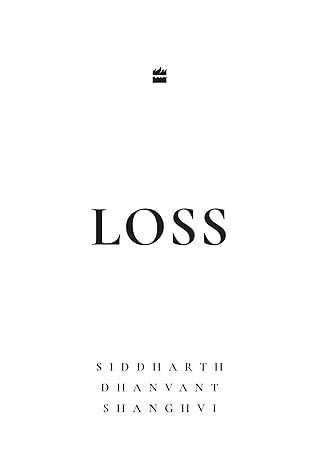More on this book
Kindle Notes & Highlights
‘We were together. I forget the rest’ – WALT WHITMAN
language, how we employ it to know someone, or love them more deeply.
The best answers are the ones we fall into, like love.
it will be a new day, another one, imagine – the thrill, promise, delight, the endless possibilities of another day.
cold relief.
leave, if you’ve enjoyed yourself. Leave, because you are still enjoying yourself. Leave, because you will have to anyway. Learn to see when the right time is staring you in the face. Leave.
Our exit from this world is remembered far more than our entry into it.
When someone dies, show up.
Human of heart, animal by instinct.
‘time is how you spend your love’.
Give love. Receive love too. It is the only thing you take with you when you die, and because it is eternal, so are you.
‘Grief, when it comes, is nothing like we expect it to be,’ Joan Didion
Are we enslaved to the memory of the person we have lost?
Does a version of our self live under the skin of this memory?
we do not go to temples to worship idols or practice faith but to weep together so that our sorrows might be known.
When we lose an intimate, two deaths occur. The first is the formal, physical death of the person. The other death is of the person we were around them.
‘Death must be so beautiful; to have no yesterday, and no tomorrow. To forget time, to forget life, to be at peace.’
waiting for someone who will never come.
And I’m never going to.
our folks will always be around.
that you will go on.
walking as a way of thinking, of airing the mind.
to observe how what falls and breaks can also be restored.
how people care for us in sublime, silent ways, the ways that we don’t always recognize or honour in the hour, but which we come to in time.
They had been flying because they could; they were free, after all: ecstatically, if not eternally, free.
The sky falls. But there are other skies behind it. You just can’t see it at the time.
‘we become what we love and yet remain ourselves’.
I’m presently peeing from the delight from seeing you again).
we can’t save the ones we love, but we can try to turn down the volume on their pain.
We do not find the meaning of life by ourselves alone,
In death, she offered profound generosity: she reaffirmed how presence is the only real gift we can give another.
At the end, we receive ashes. They are not condensations of being but a reminder that even fire cannot destroy what has been loved.
You are able to function well / Until in the middle of work or encounter / Suddenly with no warning / You are ambushed by grief.
‘Death is a reminder,’ Tan wrote to me, ‘that there’s always more that could have been said.’
Everything in life is only prep for death.
Grief is not a record of what has been lost but of who has been loved. In the end, we weep not only for the death of someone but for the startling question that faces us: what shall we do with the love we have for the deceased? Where will we put it?
Who, now, shall be recipient of the gifts of our hearts?
‘It is best for them to go when the pain is unbearable.’
To be a widow is to remember, to live in recognition of loss, and to live on in honour of the ones who have gone.
I cannot euthanize the experiences that deaden me.
In spite of death, the tree wants to live on.
A part of our job while living is to remember the dead.
Memory is indestructible – well, most of the time.
You think about someone, and they come glowingly ...
This highlight has been truncated due to consecutive passage length restrictions.
as the one with the superior heart, she would miss me more, and in deeper ways, no matter who had been first to leave.
Maybe this is just a dream And maybe we are still asleep But I, I will miss you when I’m gone.
words felt like snow falling on my heart.
So much of life is simply geography – and geography, like life, changes.
things go from familiar to unrecognizable.
The trouble with all of us is we are where we shouldn’t be.


